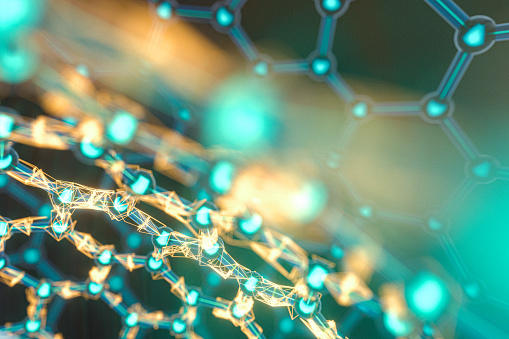Nanotechnology is the study of materials at the nanoscale, which is the scale of atoms and molecules. Nanotechnology is a rapidly growing field that is changing the way we design and create materials, devices, and systems. In this article, we will explore the advances in nanotechnology and its potential applications.
One of the significant advances in nanotechnology is the ability to manipulate and control matter at the nanoscale. This has enabled scientists to create new materials with unique properties and characteristics. For example, carbon nanotubes are incredibly strong and lightweight, making them ideal for applications such as aircraft and space travel. Nanoparticles of silver and gold have unique optical properties, which make them useful in medical imaging and cancer treatment.
Another significant advance in nanotechnology is the development of Nano sensors. Nanosensors are devices that can detect and measure specific chemicals or physical parameters at the nanoscale. Nano sensors have numerous applications, from environmental monitoring to medical diagnostics. For example, Nano sensors can detect contaminants in water and air, or measure glucose levels in the bloodstream, making them an attractive solution for healthcare providers and researchers.
Nanotechnology is also being used to develop new drug delivery systems. Nanoparticles can be engineered to deliver drugs directly to specific cells or tissues, improving the efficacy of the drug and reducing side effects. Additionally, nanoparticles can be used to cross the blood-brain barrier, enabling drugs to be delivered directly to the brain, which is challenging to achieve with traditional drug delivery methods.
Nanotechnology has also opened up new possibilities in the field of electronics. Nanoelectronics is the study of electronic devices at the nanoscale, and it has the potential to revolutionize the electronics industry. One of the most promising applications of nanoelectronics is in the development of quantum computers. Quantum computers are incredibly powerful and can perform certain calculations much faster than traditional computers. Nanotechnology is playing a vital role in the development of quantum computers by enabling the creation of qubits, which are the building blocks of quantum computers.
Another promising application of nanotechnology is in energy production and storage. Nanomaterials such as graphene have unique electrical and thermal properties, which make them ideal for use in batteries and solar cells. Additionally, nanotechnology is being used to develop more efficient lighting and energy-efficient windows, reducing energy consumption and lowering greenhouse gas emissions.
Nanotechnology also has the potential to revolutionize the field of manufacturing. By enabling the creation of materials and devices with precise control at the nanoscale, nanotechnology can improve the efficiency and reduce the cost of manufacturing. Additionally, nanotechnology is being used to develop self-assembling materials, which can assemble themselves into complex structures without the need for human intervention.
In conclusion, nanotechnology is a rapidly growing field with numerous potential applications. From creating new materials with unique properties to developing nanosensors and drug delivery systems, nanotechnology has the potential to revolutionize numerous industries. As technology continues to advance, it is likely that we will see even more applications of nanotechnology in the future, changing the way we live and work. However, it is important to consider the potential risks associated with nanotechnology, such as environmental and health risks, and to ensure that appropriate regulations are in place to mitigate these risks.



0 Comments